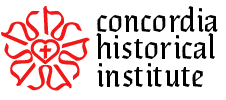The Nativity of Saint John the Baptist
64 Roman Emperor Nero (AD 37–68) began persecuting Christians.
1485 Johannes Bugenhagen was born in Wolin, Pomerania (d. 20 April 1558).
1499 Johannes Brenz was born in Weil der Stadt, near Stuttgart, Germany (d. 11 September 1570, Stuttgart).
1519 Theodore Beza, French-born Swiss reformer and one of the great statesmen of the Reformation, was born at Vezelay in Burgundy (d. 13 October 1605).
1530 The Lutherans were scheduled to be heard at the Diet of Augsburg. The original plan was to treat only the abuses of the Roman Catholic Church, basing their strictures on the Torgau, Schwabach and Marburg Articles, chiefly written by Martin Luther. But when Johann Eck’s work condemning the Lutherans appeared, Philipp Melanchthon enlarged his work in preparation for reading it to the Reichstag on the 24th. When it grew too late on the 24th, the reading was postponed until the next day.
1535 The radical Anabaptist regime of Münster was overthrown.
1542 Roman Catholic reformer, mystic and poet John of the Cross was born in Spain (d. 14 December 1591).
1548 Johannes Brenz (see above) narrowly escaped arrest during the Schmalkaldic War. He was hidden in various castles.
1549 Francis Xavier (1506–1552), Jesuit missionary to Asia, embarked for Japan from Malaysia.
1579 The first English religious service was held in the Americas. Francis Fletcher, sailing with Sir Francis Drake (ca. 1540–1596), read from the Book of Common Prayer in California. The spot is marked with a granite cross, and the day is observed by many Episcopalians.
1615 Mass was celebrated for the first time in Canada (near today’s Montreal).
1633 Antoine Daniel (1601–1648), a Jesuit, arrived in Quebec. He was martyred by Iroquois forces.
1687 Johann Albrecht Bengel, post-Reformation theologian, was born (d. 2 November 1752).
1694 German pietists landed in Philadelphia, bringing their brand of revival Lutheranism to the colony.
1697 Eric Tobias Björk, early Swedish-American pastor, arrived in America (ca. 1668–1740).
1734 James Oswald Allen, hymnist, was born at Gayle, Wensleydale, Yorkshire, England (d. 31 October 1804).
1803 George J. Webb, American sacred music organist, was born near Salisbury, England (d. 7 October 1887, Orange, New Jersey).
1813 Henry Ward Beecher, American Congregational clergyman, was born in Litchfield, Connecticut (d. 8 March 1887).
1863 Karl August Johannes Fritschel, professor at Wartburg College for over fifty years, was born in Saint Sebald, Iowa (d. 23 August 1943).
1904 The Missouri Synod’s Brazil District was organized.
1917 Orville J. Nave, U.S. Armed Forces chaplain and editor of Nave’s Topical Bible, died (b. 1841).
1934 Women of the Westphalian Auxiliary in Germany proclaimed their allegiance to the Barmen Declaration, which rejected certain Nazi claims.
1984 Harry Barr, an active layman in the Missouri Synod, died (b. 15 January 1906). He served as vice-chairman of the Board of Directors of the synod, chairman of the Operating Committee of the International Lutheran Hour, president of the International Lutheran Layman’s League, a member of the Board of Directors of Concordia Publishing House and a member of the Board of Trustees of Valparaiso University.
2022 Dobbs v. Jackson Women’s Health Organization, a case brought to the Supreme Court of The United States concerning the right to abortion, was decided on this day. The decision overruled the court’s previous rulings on Roe v. Wade and Planned Parenthood v. Casey, thus returning the regulation of abortion back to the States.


